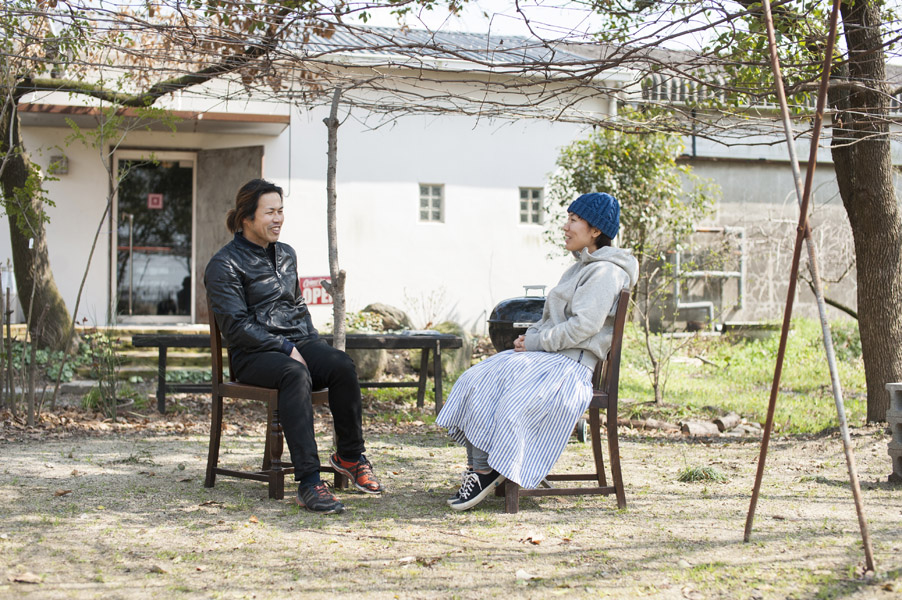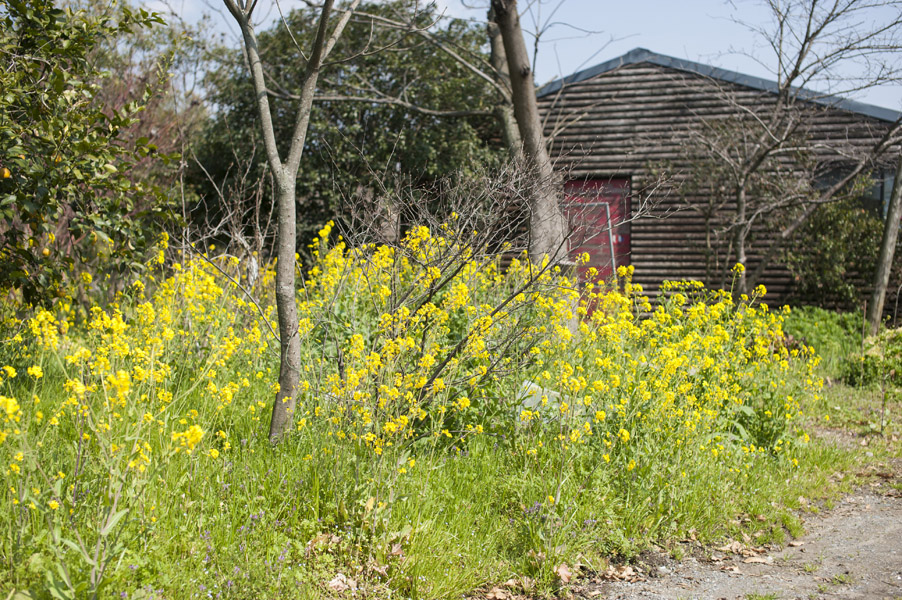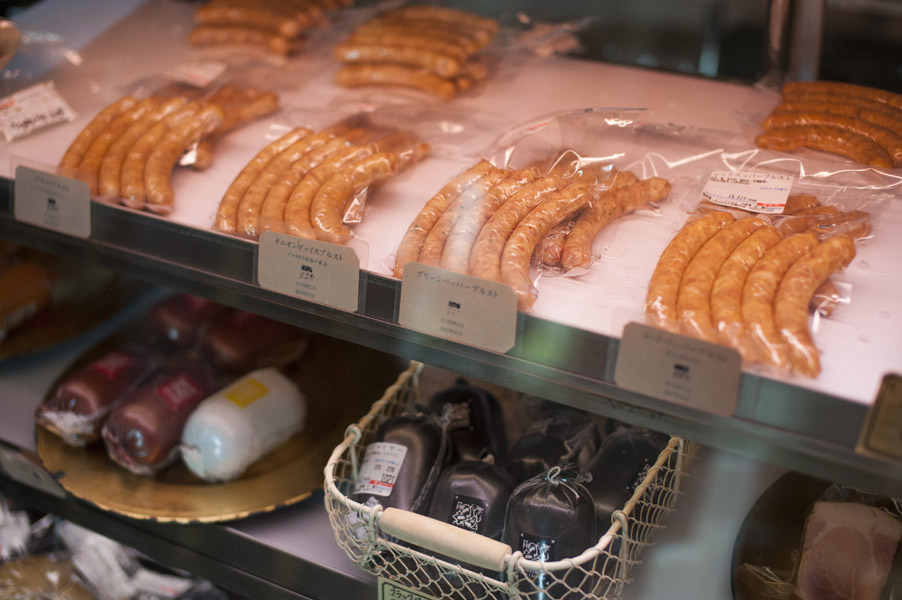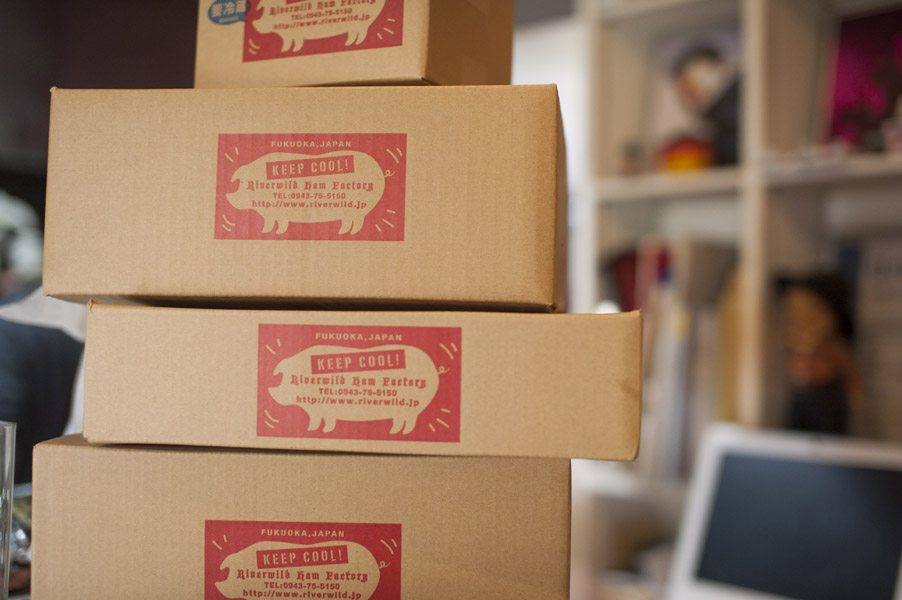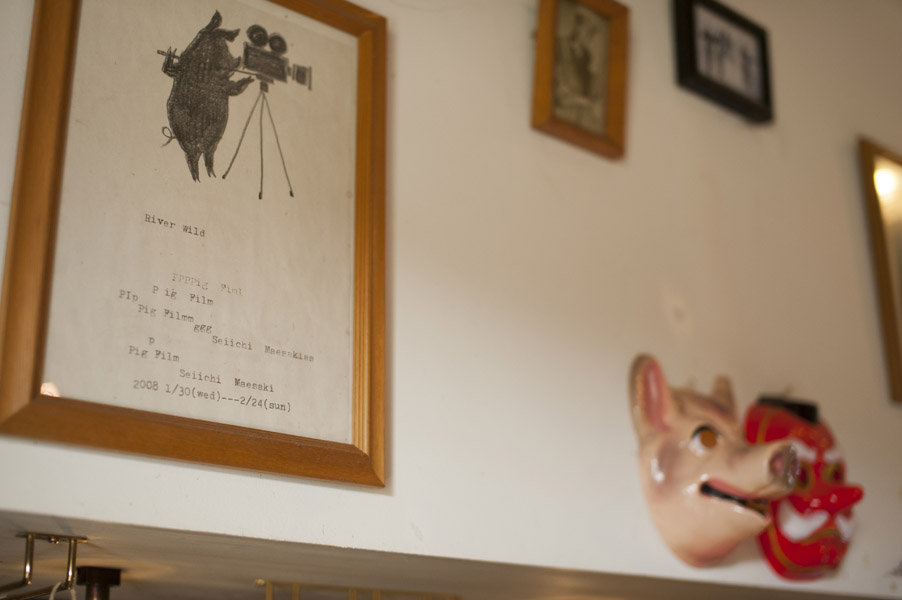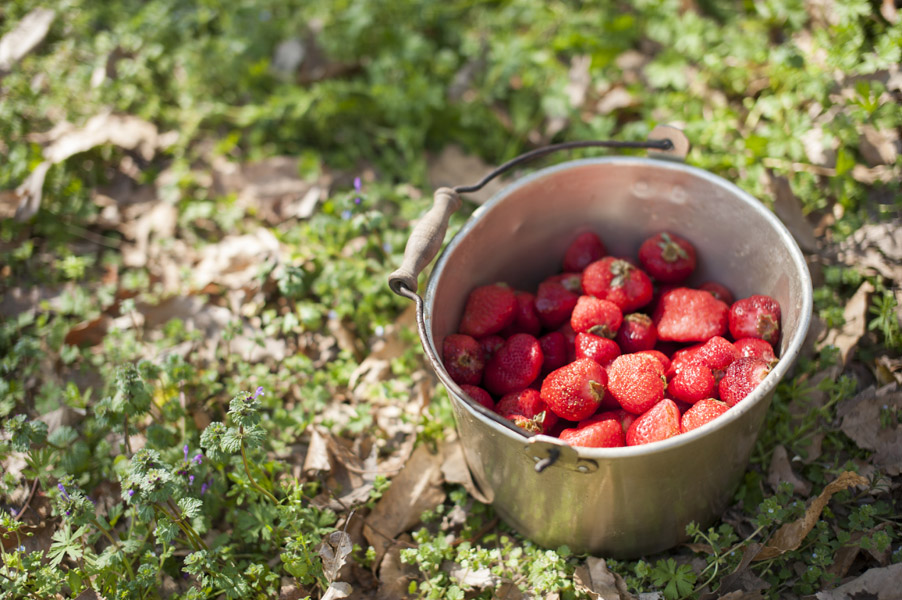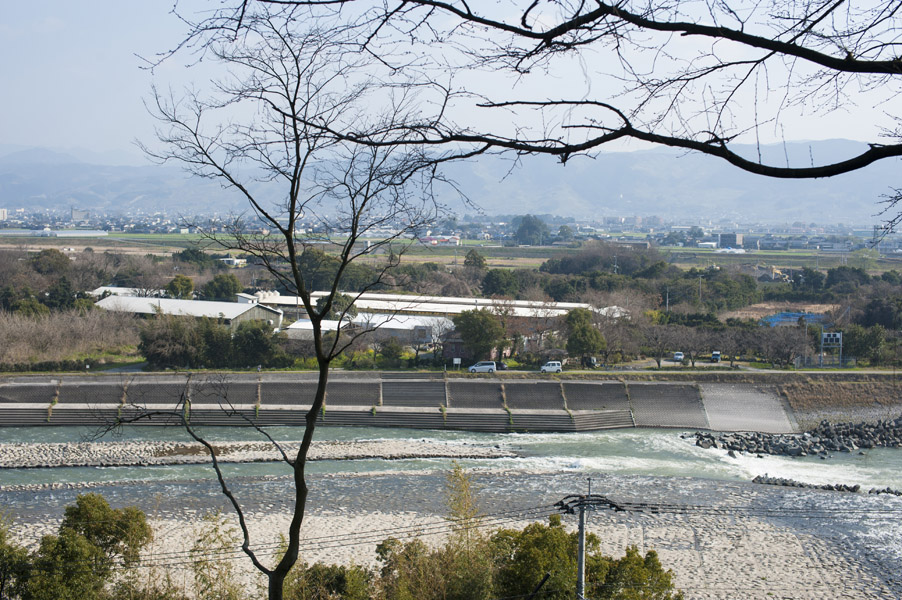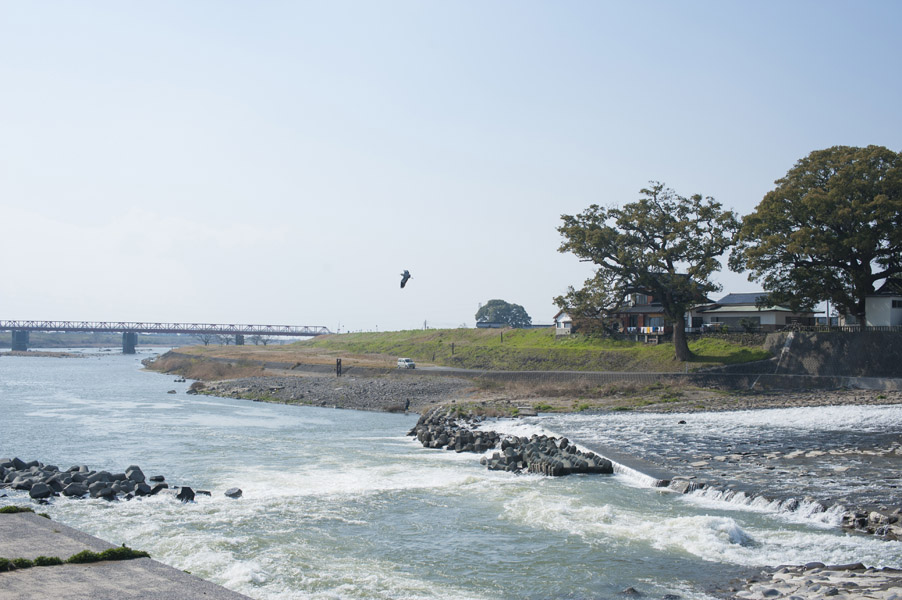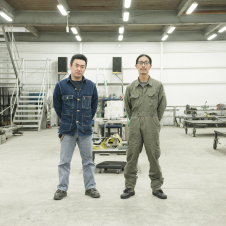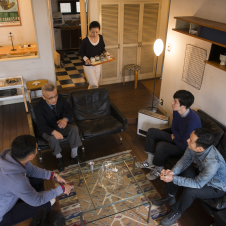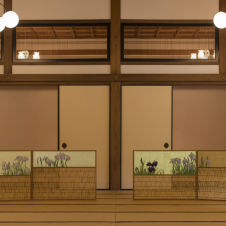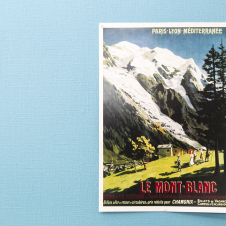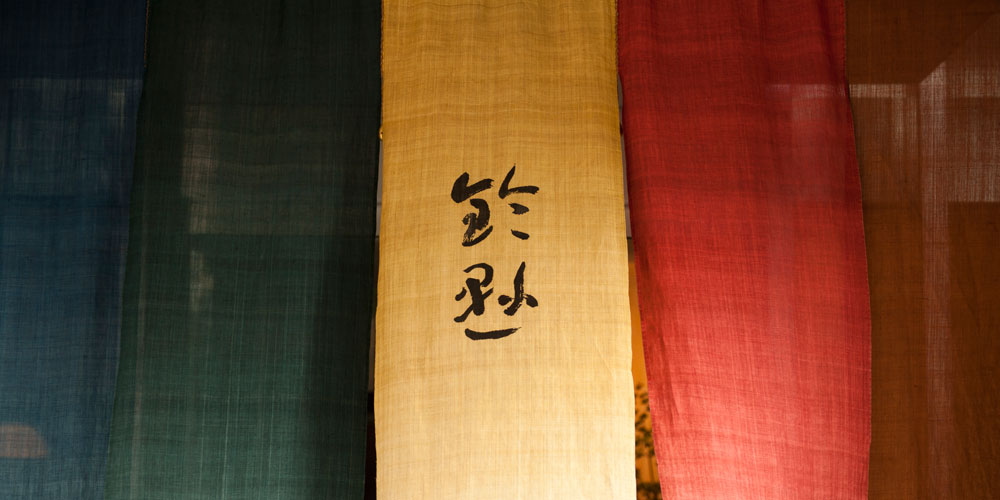Future of food
ロックな豚はどこまでも 〜Like a Rolling Stone〜
Words by Kenji Jinnouchi, Photographs by Hiroshi Mizusaki,Edit by Masafumi Tada
Katsuya Sugi is a hog farm owner and the director of Riverwild Ham Factory in Ukiha near the middle of Chikugo river. Recently, he sometimes organizes food workshops in various places in Japan. He has a passion for music, and he loves rock bands and musicians such as The Rolling Stones, Sid Vicious and Makoto Ayukawa. If you get a chance to visit his factory, you can see a lot of the musicians’ pictures displayed on the walls.
He and his friend, Kyoko Hirosawa, who helps his workshops as a cooking expert, told us of their recent activities and thoughts about the richness of food in Kyushu and the food security for the future for this interview.
The meeting took place at Sugi’s farm, which is surrounded by some of Fukuoka’s natural beauty, overlooking the river running wild.

Hirosawa: I’ve loved the atmosphere around here. I feel happy even when I’m doing nothing but taking in the beauty such as the river currents in front of me.
Sugi: I know what you mean. There is a great heritage called Yamadazeki, built in the Edo period, which is a dam made of stones near my barn. There is also a historical shrine called Esohachimangu on the other side of the river, and it enshrines Emperor Tenchi. Ancient people built them here, maybe because they might also have felt the same kind of attachment like you had from this area.
C: Would you tell us how you met each other?
S:I think it was about three years ago, when I suggested to my friend Izumi, the owner of Coffon in Yakuin; “I’d like to have a food workshop using meat from my farm. Would you know of anyone worth recommending to help me?” and she said, “I do!” and introduced Ms. Hirosawa to me.
H: Yes, it was soon after I had left Tokyo and moved to Fukuoka, where I am based now, but I was already aware of Riverwild and how tasty its products were, because I had had some sausages from the factory before we met each other in person. But I didn’t even know where Riverwild is located and what kind of person the owner is. Every time I heard about him from our mutual friends, they told me, “He rocks.” – I understood what that meant as soon as I saw him.
C: How was it when you cooked Riverwild’s pork for the first time?
H:It was amazing because it didn’t have the strong pork smell that normal pork has. And I loved even its fatty part. Usually, fat needs to be removed, right? Leaving the fat on this product adds something. Also the different kinds of bacon that he makes are so delicious. He makes it ground too. Hamburger steaks using only the meat is also fantastic. I don’t use beef-mixed ground pork for my hamburger steaks any more.
S: For hamburger steaks, using mixed-ground meat is usually better than that of one kind, because chicken, beef and pork, each have different flavors which create a very rich and complex taste together in one dish when they’re cooked. I guess it feels like the taste is missing something when you cook with normal pork.
H: His persimmon pork itself has a very nice sweet and umami flavor. I would recommend the best way to cook it is to simply roast it or cook it with salt and pepper. We don’t even need herbs or spices! As a cooking expert, I’m always looking for creative ideas to suggest to participants at our workshops. However the best way to cook this meat is simply with salt and pepper, but I wouldn’t like to think it’s very creative!
S: Even with simple seasonings, how you cook it and at what temperature can make a big difference in taste.
C: By the way, to make a question clear, -“What is Persimmon Pork?”
We tried asking this wild farmer, Sugi, about his Persimmon Pork, and its history.
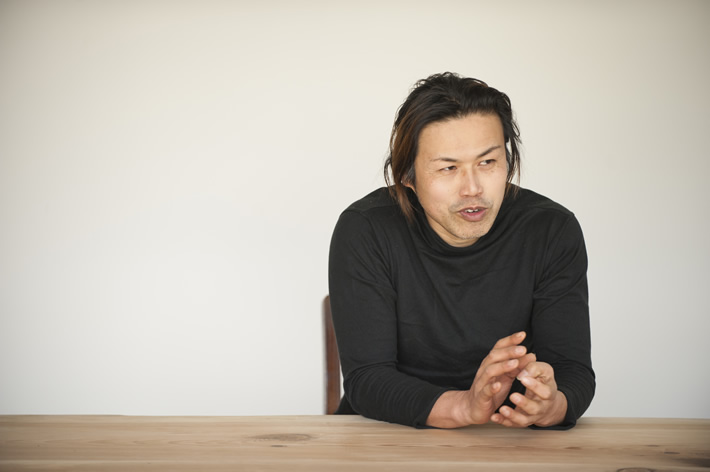
S: My father was running this farm but I didn’t want to do the same job. Actually, I wanted to work in the advertising industry. Even though I tried to help him, we fought a lot. So I started thinking that I should have made ham etc, outside of his business.
As soon as I actually started learning how to make ham at various places, and when I turned 23 or 24, he suddenly fell sick. I had no choice but to take over his business.
Afterwards, I had focused on running the farm for four years. I found I wasn’t becoming personally satisfied. “I was supposed to make ham…”- I was just holding the regret. So, finally, I decided to set up my own ham factory. It wasn’t easy, and I ended up in debt from it. Running the farm and making ham, I felt I could never get any rest. However, I started finding it interesting to make ham with pork from my farm.
I sometimes got disappointed with it and sometimes became proud from it. I could finally see the results about my pork after I make ham from it. After many trials and errors, I finally noticed that the most important thing was how I was to raise hogs. From that point on, I started putting serious efforts into breeding and feeding management.
About 10 years ago, when I started to find my job rewarding, my friend Akiyoshi was growing less pesticide certificated persimmons. One day, I heard that his farm needed to throw away two truckloads of persimmons that they weren’t able to sell because a huge amount of persimmons grown using more pesticides from other farmers was offered at the market as well, after which pricing became very competitive. So, I asked him to give them all to me instead. Originally, the local area is full of fruit farms. The farmers produce many kinds of fruit such as; peaches, strawberries, persimmons, and grapes. Basically, I had been thinking it would have been a great idea for a long time. But, these kinds of juicy fruits made hogs get full easily, so it was difficult to feed them other food. This was a problem because it took time to make them fat enough for the market with a diet consisting of mainly fruit. However, we still believed if we attempted to use their persimmons, it would be good for both of us giving some special values and distinguishing our products from other competitors. So, I talked with Akiyoshi and other farmers and we were able to organize a farmers group who used less pesticide to grow persimmons. I thought it would be a big opportunity for my persimmon pork to be famous and known as one of Fukuoka’s specialties.
Though, the process was a difficult one, and someone suggested to me that maybe I shouldn’t have rushed to a conclusion. So, we now are focusing more on how we enjoy cooking our persimmon pork every year. Even though it is priced a bit higher, we will consistently strive to make our products some of the best on the market, and continually prove our product is amazing. Our customers give us strong support because they trust our products, and love the taste, making this all worthwhile!
C: Now that we have learned about the offbeat story of persimmon pork, I’d like to present some of the talks we’ve shared.
H: What else do you have except for Persimmon Pork at your farm?
S: Peach Pork, Strawberry Pork, Grape Pork, and Yogurt Pork fed with yogurt made from Morimitsu Farm’s milk. It usually takes six months for each pig to become mature enough and ready for the market. We are giving these kinds of fruit or food to them like dessert during last two of the six months. Persimmon season is from around the end of October to the end of February every year, so during the off seasons, we feed our hogs some of the other fruits that are in season at the time.
H: What’s the percentage of special hogs like Persimmon Pork?
S: My farm takes 40 hog meat to the market per week, and only two or three are special ones.
H: Is it that small!?
S: Yes. First of all, I pick 10 or so, out of 200 hogs judging by their pedigree and look. After, I feed them with fruits such as persimmons and strawberries. They are the top of the top, an elite just like the national soccer team of Japan, which is selected and trained well.
H: Every time I hear a story like that, I feel that I need to spread what farm producers are doing to produce food that they want because I believe my job is not only cooking but I’m also in charge of introducing the backgrounds of ingredients to people. People who have jobs like mine are able to know the situation from both sides; producer and consumer. For example, I can explain reasons why his meat is so tasty, also, I can report the consumers’ feedback to the producers. I can even suggest appropriate ways of cooking for each vegetable from the information I can received. I don’t think that recipes from TV shows or magazines are able to cover all information the same way. Even if it takes a million baby steps to reach my goal, I started putting more effort into letting people know about my activities, more so than when I was in Tokyo. From time to time, I return to Tokyo for food events, and I often advertise how great food from Kyushu is, because I really love it! I think I am a great sales representative for Kyushu’s local products.
S: This season, I am feeding hogs with organic strawberries from Yamashita’s farm in Kurume, which the farmers definitely put a lot of time and effort into. It’s a pity, though, not many people know of their strawberries. I strongly believe everyone in Japan should know about them!
H: Agreed. We consumers should look into the food backgrounds and evaluate them and support high-motivated producers by purchasing their products. If we keep putting a priority on things other than quality, mass-produced foods with pesticides are convenient. However, we need to be smart and care about the security of our food and continue to have higher standards. I wouldn’t have noticed something like this, if I still lived in Tokyo. When I was there, unreal amounts of superficial information was flooding over me, and I never got the truth. I felt that Tokyo was too far from where the foods come from, to know what is genuine. So, it was new to me that I could feel very close to the farmers here. But, the local people don’t think this feeling is so special. I told them, “You guys are so lucky to live having circumstances like these! Within an hour drive from the city area, you can get gifts from nature, such fresh vegetables, meat, fish and fruits. It’s fantastic! ” but, they said “Oh, yeah?” Actually, I think people from Tokyo can be sensitive for how lucky it is. Since March 11, 2011, in my opinion, Kyushu region, including Fukuoka, has been one of the top areas to encourage Japan’s future and is getting more attention from everywhere. It is so great that food producers like Sugi and his friends, who are young and enthusiastic, make communities and try to take a role in the food industry for the future.
S: Working in agriculture, and dealing with nature is not easy. It is really tough, but we would simply like to make our customers happy with our products.
H: Is there a certain customer you have in mind when selling your products?
S: Well…Makoto Ayukawa, who I have been a big fan of since I was in junior high school, has actually tasted it! So, I would like Himurock (Kyosuke Himuro) to try it, too. And then, eventually, David Bowie!
H: Wait… I think he’s a vegetarian!

Katsuya Sugi
The director of Riverwild Ham Factory and the owner of Sugi’s Farm. He breeds his hogs feeding fruits such as persimmons and peaches and organizes cooking workshops in various locations in Japan.
http://www.Riverwild.jp/
Kyoko Hirosawa
Professional cook, Food coordinator
Worked as an assistant of Mr. Norio Itai in Tokyo, and then started working independently. She moved to Fukuoka in 2010 and has been based in Fukuoka under the name of “COOKLUCK”, writing recipes and styling food for magazines, books and advertisements.
http://www.cookluck.com/
Riverwild Ham Factory
565 Tachibanada, Yoshiimachi, Ukiha, Fukuoka
Phone: 0943-75-5150
Hours: 11:00~18:00
Regular holidays:Mondays and Tuesdays
